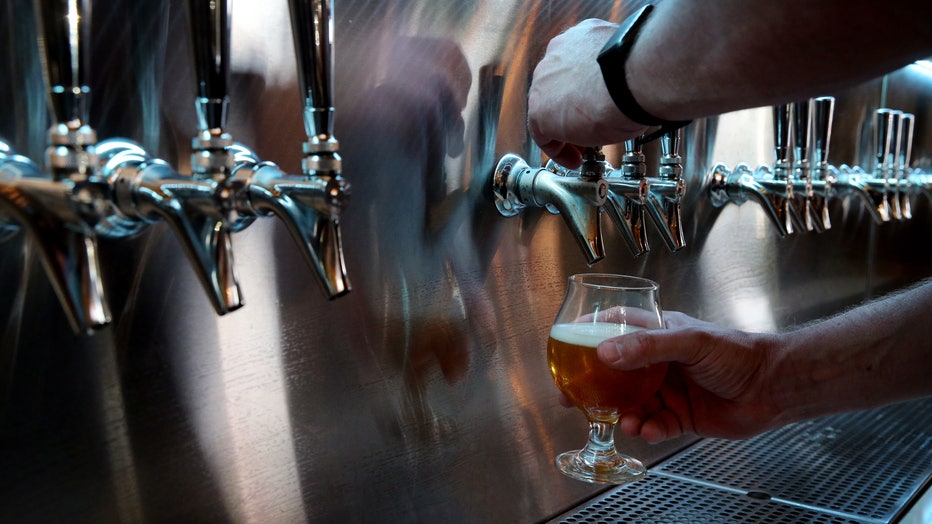Liver transplants, waiting list registrations surged during COVID-19 pandemic
ANN ARBOR, Mich. - The United States saw its alcohol consumption spike during the COVID-19 pandemic, and researchers at the University of Michigan believe the results of their recent study on alcohol-associated liver disease highlight the need for public health interventions.
The study, published Tuesday in the journal "JAMA Open Network," found significant increases in the number of people registering for the national organ transplant waiting list as well as the number of deceased donor liver transplants linked to alcoholic hepatitis.
In association with increased alcohol sales, both statistics exceeded predicted volumes by more than 50%.
RELATED: Americans drank, smoked more in pandemic: study
"While we cannot confirm causality, this study provides evidence for an alarming increase in alcoholic hepatitis associated with known increases in alcohol misuse during COVID-19," said Dr. Maia S. Anderson, a general surgery resident at Michigan Medicine and the first author of the study. "And it highlights the need for public health interventions around excessive alcohol consumption."

A patron draws a beverage from a tap on the beer wall at Revolution Hall, a new food hall and entertainment area, in Lexington, MA on June 15, 2021. (Photo by Craig F. Walker/The Boston Globe via Getty Images)
Numerous studies have shown Americans turned to unhealthy habits like smoking and drinking during the pandemic. According to a recent study published in the peer-reviewed journal "Nutrients," researchers saw a 9% increase in smoking and 60% rise in alcohol consumption among more than 2,700 participants.
The Federal Trade Commission also released a report Wednesday showing cigarette sales rise in the U.S. for the first time in 20 years.
RELATED: Cigarette sales climbed last year for the first time in decades, FTC says
Even so, Michigan researchers qualified their findings, saying fewer than 6% of patients with severe alcoholic hepatitis are listed for transplantation — meaning the increasing waiting list volume during COVID-19 represents a small fraction of the increase in alcoholic hepatitis.
According to John's Hopkins Medicine, alcoholic hepatitis is inflammation of the liver that leads to liver cell damage and cell death. Caused by drinking too much alcohol, the disease typically develops over time – though sometimes severe hepatitis develops suddenly and quickly, leading to liver failure and death.
The U.S. Centers for Disease Control and Prevention (CDC) recommends no more than one drink a day for women and two per day for men.
The CDC says excessive alcohol consumption leads to American 95,000 deaths each year. A tenth of those fall among working-age adults.
This story was reported from Atlanta. FOX News contributed to this report.


